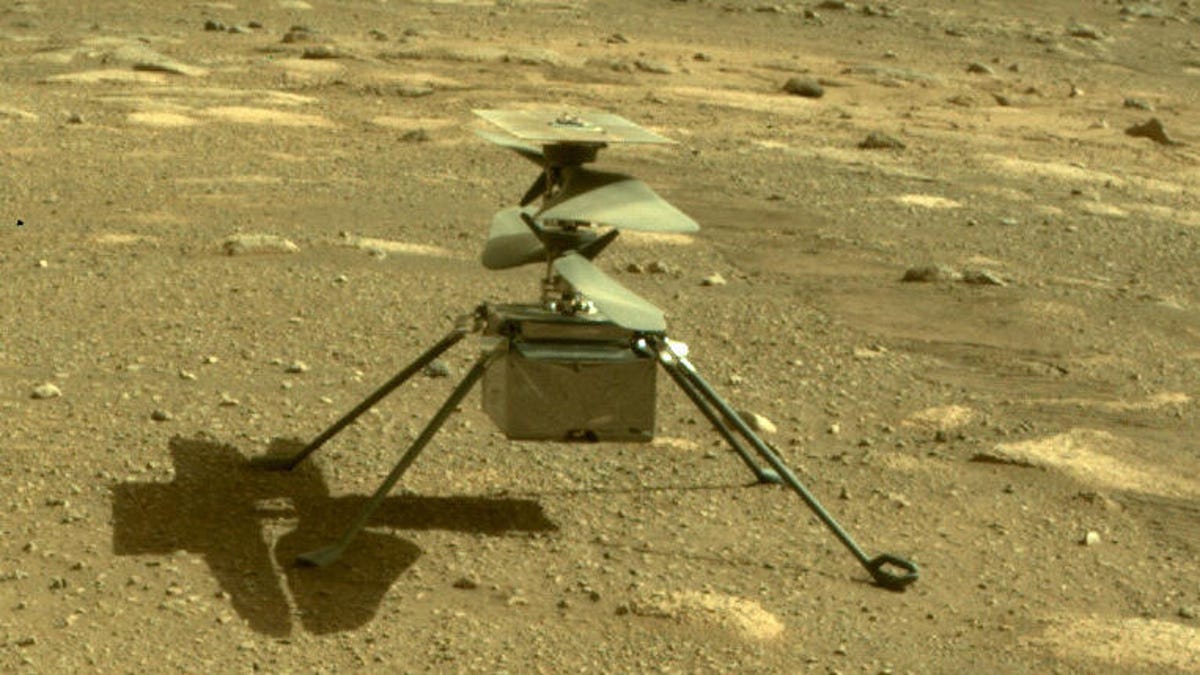NASA Mars Helicopter Is Taking a Vacation From Flying
Ingenuity's extended break will help it recharge its batteries.
The history-making Ingenuity helicopter, currently parked in the Jezero Crater on Mars, will be getting more vacation time this year than a lot of Americans.
NASA said on Wednesday that it will postpone flights for the solar-powered rotorcraft for several weeks. "It's now dust season and winter on Mars, meaning there's more dust in the air and less sunlight to help recharge Ingenuity's batteries," the helicopter team said in a status update.
The overachieving helicopter -- which proved that powered, controlled flight is possible on another planet -- isn't expected to take to the air again until early August after dust levels subside. The time off will give the flyer a chance to build up the charge on its batteries. That's not too different from why humans take vacations.
Ingenuity traveled to Mars as a high-risk, high-reward technology demonstration. It surpassed all expectations and has now logged a whopping 29 flights since its first liftoff in April 2021. The most recent took place on June 11 as it moved positions to better stay in touch with its companion, the Perseverance rover. The newly announced break from flight will extend its already lengthy down time.
Recent weeks have presented the helicopter with a lot of challenges as dust increased and extra-cold temperatures set in. The team had to work through issues related to a dead sensor prior to its last flight.
NASA is in uncharted territory with the surprisingly long-lived helicopter. It won't be easy surviving the tough conditions, but it has a good shot. As NASA JPL noted in a tweet: Don't worry, the team expects it to fly again.


